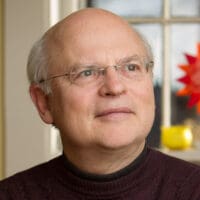Overview
For many years, physicist Arthur Zajonc and neuroscientist Richard Davidson have worked with the Dalai Lama at the intersection of contemporary science and Buddhist thought. They offered their views on the power of this dialogue, and its significance for themselves and their work. This leads to larger questions of wider importance. Why are Western scientists interested in a dialogue with Buddhism or the contemplative traditions more generally? What are the areas of science where this dialogue has been felt to be most fruitful, and why? What can Buddhist scholars and monastics potentially contribute to the work of Western science, why should they be motivated to do so, and what has been accomplished so far? In addition, Zajonc and Davidson explored some elementary perceptual puzzles that demonstrate the methods, insights, and also the limits, of physics, neuroscience and consciousness studies. In particular, what can one learn about the significance of context and relationship for observation and cognition generally? Where does physics leave off and the science of the mind begin? What is the difference between them, and how are they related?
- Dialogue 2627 sessions
- January 17, 2013Drepung Monastery, Mundgod, India


